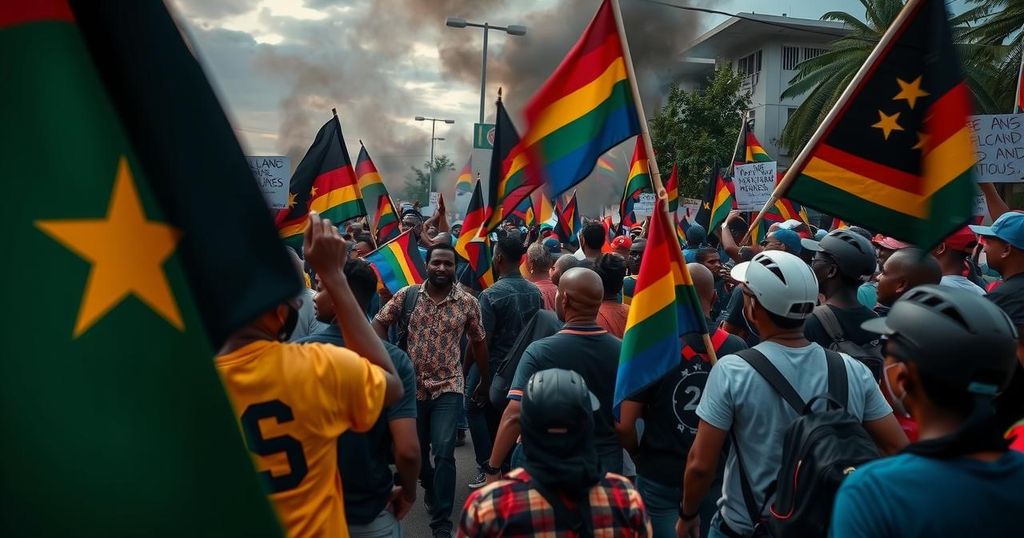Mozambique has prohibited protests following violent unrest triggered by a disputed presidential election won by the ruling party, Frelimo. The Interior Minister described the protests as acts of terrorism, citing significant violence that has resulted in numerous fatalities. Opposition leaders claim the elections were manipulated, amidst a broader context of socio-political unrest and government restrictions on civil liberties, including internet access.
The government of Mozambique has implemented a ban on protests in response to ongoing unrest following the contested presidential election that took place last month, which resulted in a victory for the ruling party, Frelimo. The unrest has escalated over weeks, leading to violent confrontations between demonstrators and law enforcement, resulting in numerous casualties and injuries. Reports indicate that at least 18 individuals have lost their lives amid the protests, with human rights organizations suggesting the numbers may be higher. Interior Minister Pascoal Ronda has characterized the protests as acts of terrorism, condemning them for causing widespread fear among the populace and hindering daily life. Demonstrations erupted after Daniel Chapo, the Frelimo candidate, was declared the winner with over 71% of the votes. The leader of the opposition party, Venâncio Mondlane, who received approximately 20% of the votes, has since gone into hiding, citing concerns for his safety following violent incidents involving his associates. In a bid to control the situation, soldiers were deployed to assist police in managing the protests, which have involved the use of tear gas and rubber bullets against crowds that have engaged in disruptive activities such as road blockades and fire setting. Ronda further claimed that those organizing the demonstrations are exploiting vulnerable youth to incite discord within the nation. He insists that the measures taken by the government to restrict internet access are necessary to counteract what he describes as attempts to undermine the stability of the country. The opposition and various observers have accused the authorities of conducting a fraudulent election process, a charge that the government vehemently refutes. As President Filipe Nyusi prepares to leave office after completing two terms as mandated by the constitution, the political landscape remains tense, characterized by uncertainty and calls for reforms.
The recent election in Mozambique has sparked significant civil unrest, largely attributed to accusations of electoral fraud and mismanagement. Mozambique has been governed by Frelimo since its independence in 1975, and recent developments reveal deepening divisions within the populace regarding the legitimacy of the political process. The aftermath of the election, punctuated by protests and confrontations with law enforcement, highlights the fragile state of democracy in Mozambique amid historical political tensions. The discontent is not merely political but also relates to existing socio-economic struggles, further complicating the public’s response to the government’s actions in the wake of the elections.
The recent ban on protests in Mozambique illustrates the government’s efforts to assert control in the face of public dissent following a disputed election outcome. With tensions high and accusations of electoral fraud swirling, the country faces a critical juncture that will determine its political future. The international community’s response and the actions of local opposition leaders remain pivotal in shaping Mozambique’s trajectory in the coming months, as calls for accountability and reform become increasingly urgent.
Original Source: www.bbc.com






